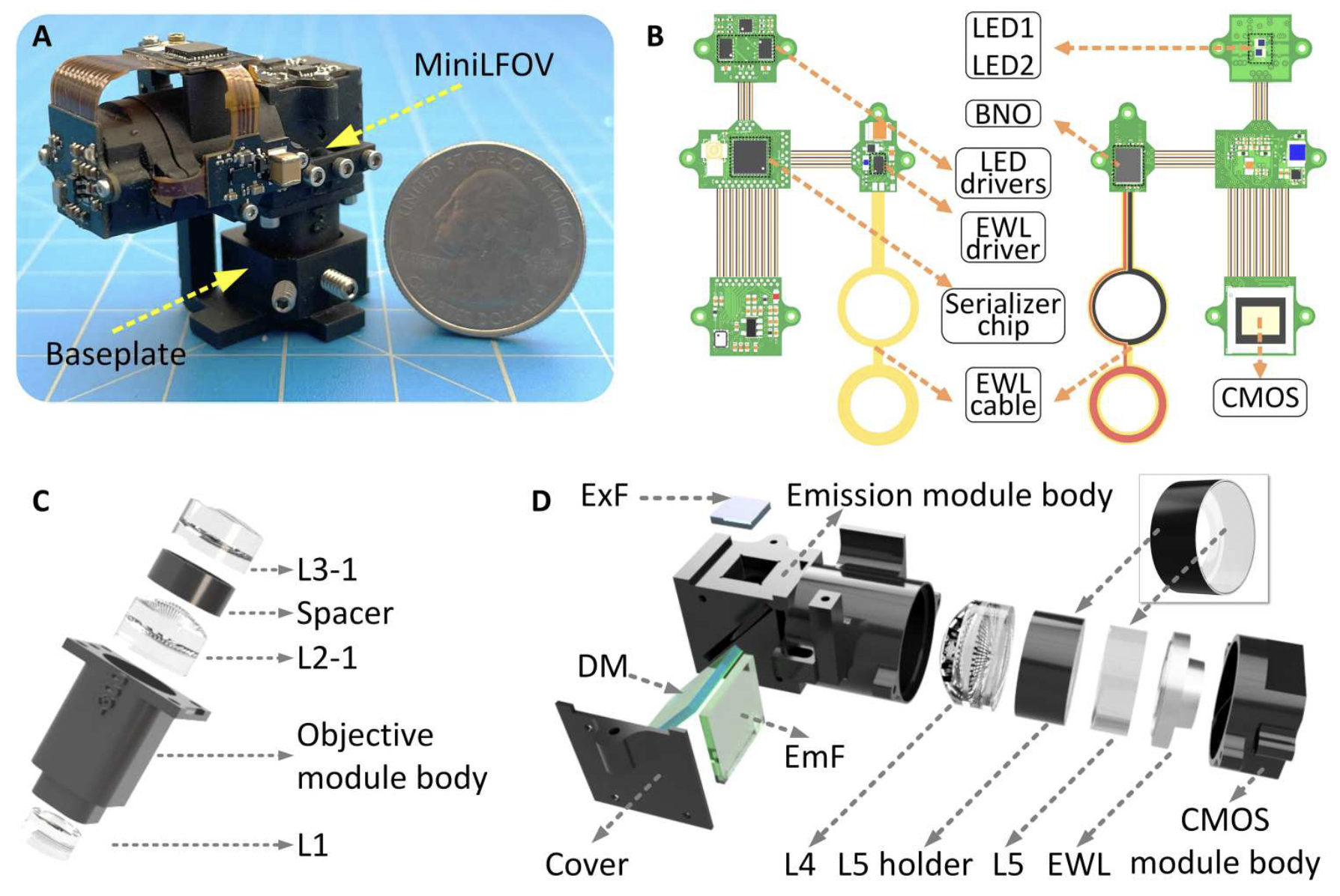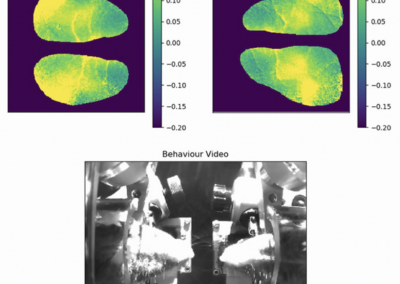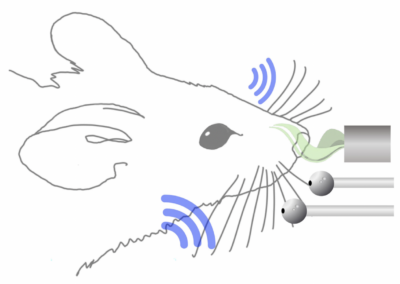Miniscope-LFOV

Changliang Guo, Garret Blair, and colleagues out of the Aharoni Lab at UCLA published their open source large-field-of-view Miniscope in Science Advances in April 2023.
Miniscopes (miniature microscopes) are useful for measuring neural activity in freely-behaving animals, allowing researchers to cross-compare behavioral and neural data. The Miniscope-LFOV is an expansion on the UCLA Miniscope platform. Previous devices were built for research in mice; they are smaller and have lower spatial resolution than what is needed for larger rodents or nonhuman primates. The field of view (FOV) for these miniscopes is only about 1mm2. The Miniscope-LFOV fills this gap — increasing the FOV for larger species to 3.6 mm x 2.7 mm, while still weighing under 14 g.
The system was designed in 3 parts: the objective module, the emission module, and the sensor module containing the optical components and a printed circuit board for excitation and imaging. The device size totals at 35 mm tall and weighs just under 14 g. It can be paired with a wearable data acquisition expansion board which allows the device to be wire-free, optimal for freely-behaving animals.
The Miniscope-LFOV is an incredibly useful expansion of the Miniscope, allowing researchers to explore corresponding neural and behavioral data in larger rodents and nonhuman primates, while still allowing the animal to be freely-moving.
This research tool was created by your colleagues. Please acknowledge the Principal Investigator, cite the article in which the tool was described, and include an RRID in the Materials and Methods of your future publications. RRID: SCR_021480
Special thanks to Abby St. Jean, a neuroscience undergraduate at American University, for providing this project summary.

Access the code from GitHub!
Check out the repository on GitHub.





